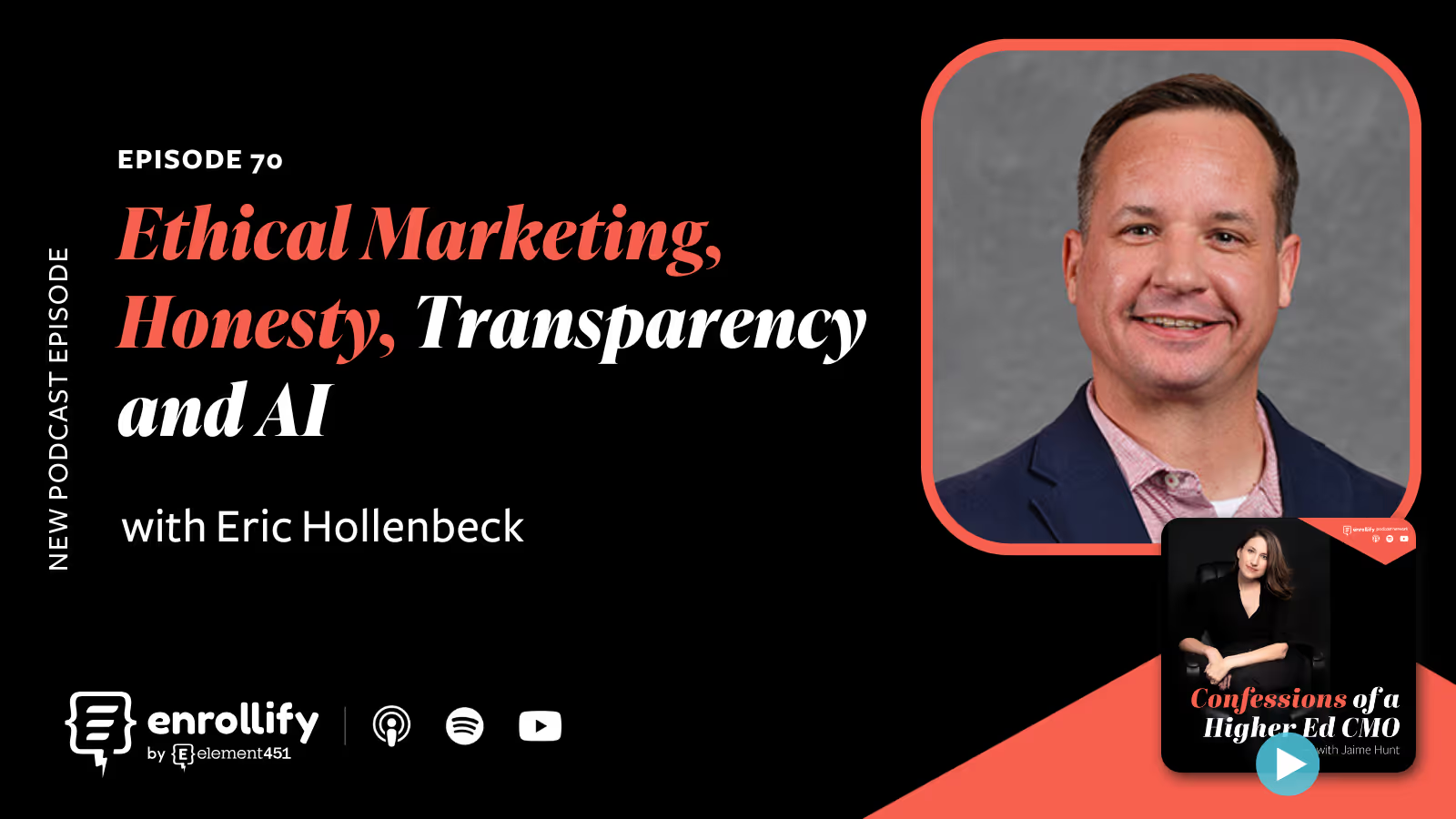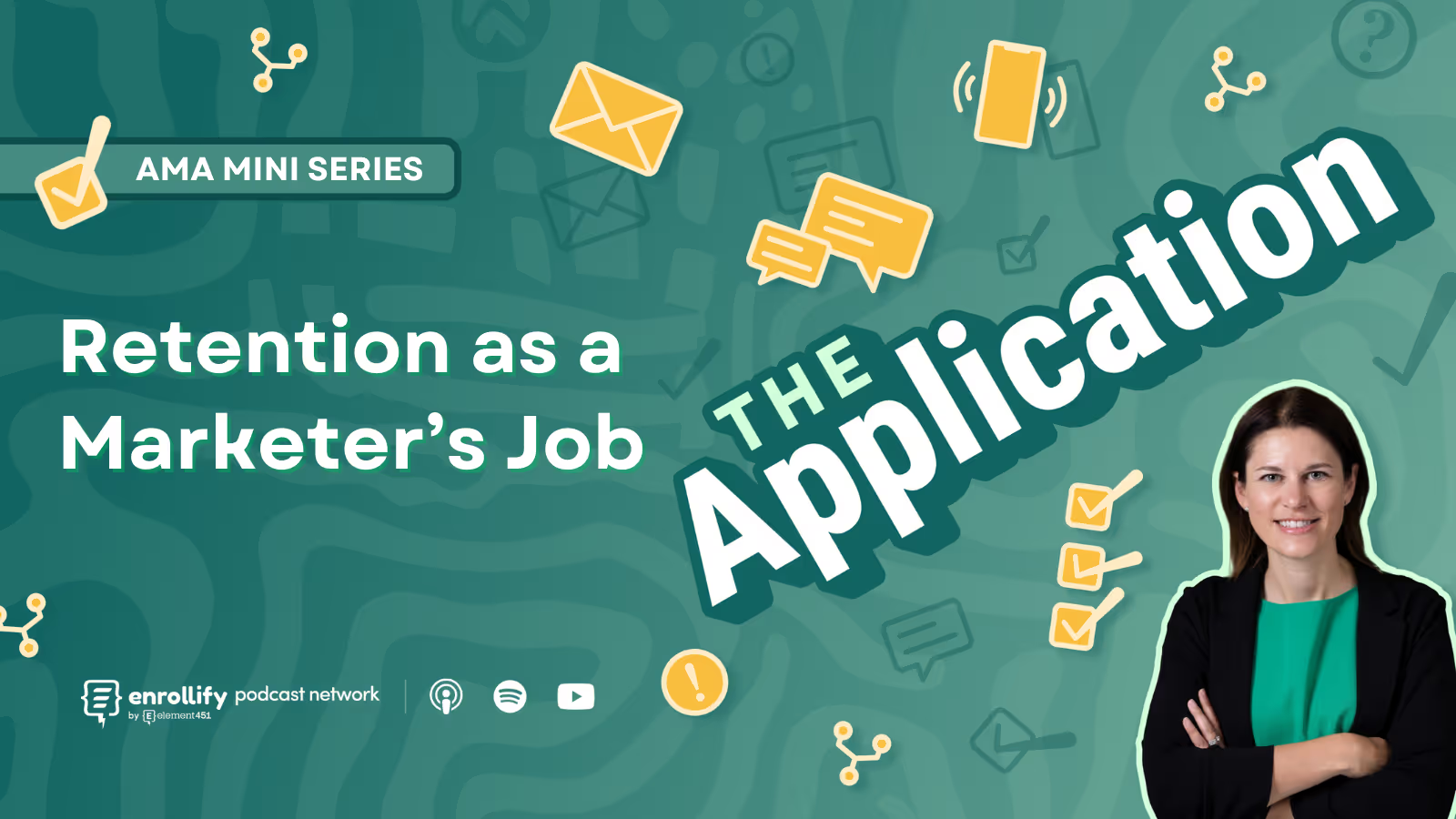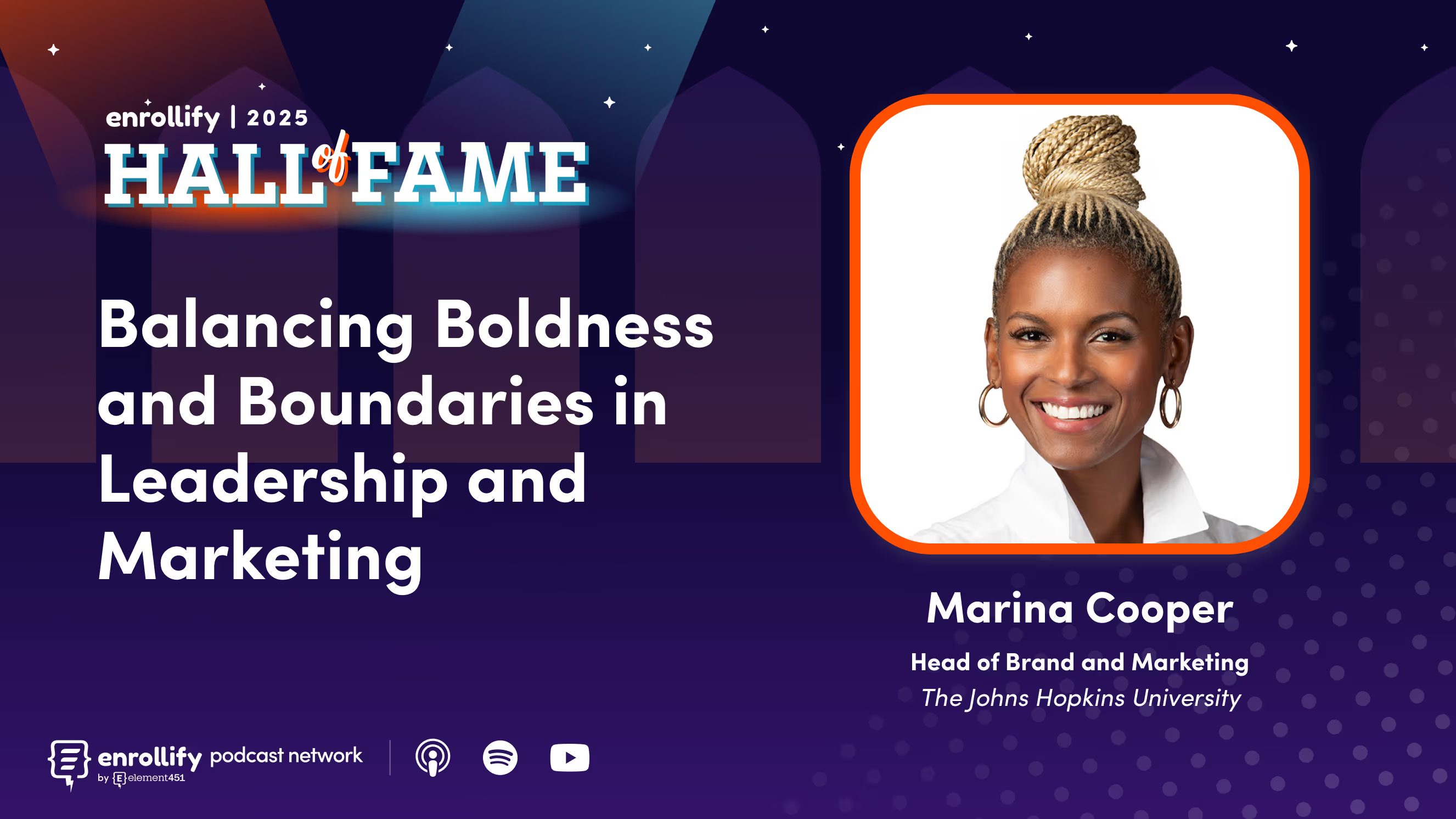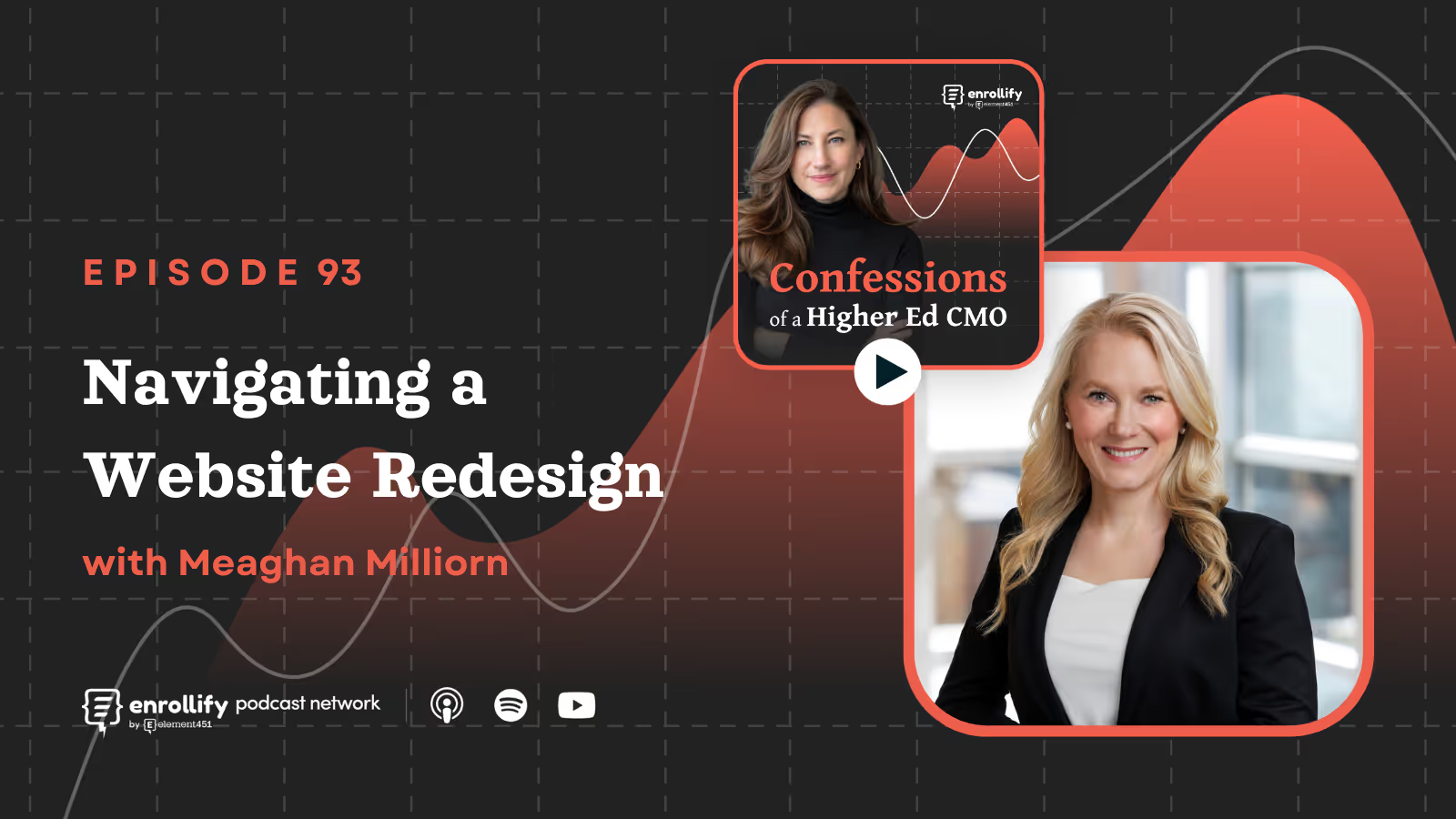About the Episode
Got a story to tell? An innovative idea to share? Fill out our guest nomination form and let's chat!
About the Episode:
In this episode of Confessions of a Higher Ed CMO, Jaime Hunt sits down with Eric Hollenbeck from Washington State University’s Carson College of Business to unpack the findings of the 2024 Ethical Marketing Survey. This groundbreaking research highlights public perceptions of ethical practices in marketing, including AI usage, misinformation, and the need for transparency. Together, they discuss actionable strategies for higher education marketers to build trust, address generational differences, and navigate the evolving ethical landscape of marketing in the AI era.
Key Takeaways
- Transparency is Key: 76% of survey respondents believe organizations should disclose AI usage in marketing. Higher ed institutions should develop clear policies and openly communicate AI’s role in their processes.
- Generational Differences in AI Comfort: Millennials are more comfortable with AI due to its integration into their daily lives. Tailoring messaging about AI benefits based on generational values can improve trust.
- Ethical Marketing Drives Long-Term Success: Public sentiment favors transparency and ethical practices, making them essential for institutions aiming to build lasting credibility.
- Media Literacy is a Higher Ed Responsibility: With only 57% of survey respondents confident in identifying misinformation, higher ed institutions have a pivotal role in fostering media literacy among students and the public.
- Policy Development Matters: Institutions should establish, review, and communicate policies on ethical marketing and AI use to ensure trust and accountability.
Episode Summary
What is the 2024 Ethical Marketing Survey?
Eric Hollenbeck describes the 2024 Ethical Marketing Survey, which surveyed 1,000 Americans to gauge public opinions on AI, misinformation, influencer marketing, and brand ethics. The survey offers key insights into public expectations, revealing that transparency and honesty are critical for maintaining consumer trust.
How Should Higher Ed Marketers Approach AI Transparency?
One of the standout findings was that 76% of respondents believe organizations should disclose their use of AI in marketing. Eric suggests that higher ed marketers should proactively communicate their AI use, especially for tools like chatbots or AI-generated content. He emphasizes that transparency builds credibility and aligns with the public’s call for openness.
Jaime and Eric also explore the nuanced question of what AI usage warrants disclosure. They agree that while everyday uses like brainstorming might not require transparency, AI-generated visuals or personalized student experiences should be openly communicated. This distinction ensures ethical practices without overwhelming audiences with unnecessary details.
How Can Higher Ed Tailor Messaging Across Generations?
The survey highlighted generational differences, with millennials showing greater comfort with AI. Eric notes that marketers should focus on the benefits of AI technologies when crafting messages for each generation. For younger audiences, emphasize how AI improves convenience and responsiveness. For older generations, stress accuracy and reduced human error. This approach ensures messaging resonates with diverse audience segments.
What Role Should Higher Ed Play in Media Literacy?
Eric shares insights from Washington State University’s programs that integrate media literacy education into their curriculum. For example, the WSU Skills and Knowledge Accelerator teaches graduate students marketing and media ethics. Interdisciplinary collaboration across departments amplifies these efforts, helping students and the public navigate misinformation and develop critical thinking skills.
Jaime and Eric stress that fostering media literacy isn’t just an institutional responsibility—it’s essential for preparing students to thrive in an increasingly complex digital world.
What Ethical Practices Should Higher Ed Marketers Prioritize?
Eric provides several recommendations for marketers to uphold ethical standards:
- Engage in Transparent Conversations: Clearly disclose AI use in marketing campaigns and communications.
- Focus on Authentic Storytelling: Highlight genuine student and institutional stories to build trust.
- Develop and Review Policies: Regularly revisit policies on data privacy, AI use, and ethical marketing to stay aligned with public expectations.
- Champion Media Literacy: Partner with faculty and academic units to educate students and the public on identifying misinformation.
Jaime echoes these points, emphasizing that empathy-driven marketing is key to aligning with audience needs and building lasting trust.
To hear this interview and many more like it, subscribe on Apple Podcasts, Spotify, or our website, or search for Confessions of a Higher Ed CMO in your favorite podcast player.
Connect With Our Host:
Jaime Hunt
https://twitter.com/JaimeHuntIMC
About The Enrollify Podcast Network:
Confessions of a Higher Ed CMO is a part of the Enrollify Podcast Network. If you like this podcast, chances are you’ll like other Enrollify shows too!
Some of our favorites include Talking Tactics and Higher Ed Pulse.
Enrollify is produced by Element451 — the next-generation AI student engagement platform helping institutions create meaningful and personalized interactions with students. Learn more at element451.com.
Attend the 2025 Engage Summit!
The Engage Summit is the premier conference for forward-thinking leaders and practitioners dedicated to exploring the transformative power of AI in education.
Explore the strategies and tools to step into the next generation of student engagement, supercharged by AI. You'll leave ready to deliver the most personalized digital engagement experience every step of the way.
👉🏻 Register now to secure your spot in Charlotte, NC, on June 24-25, 2025! Early bird registration ends February 1st.















